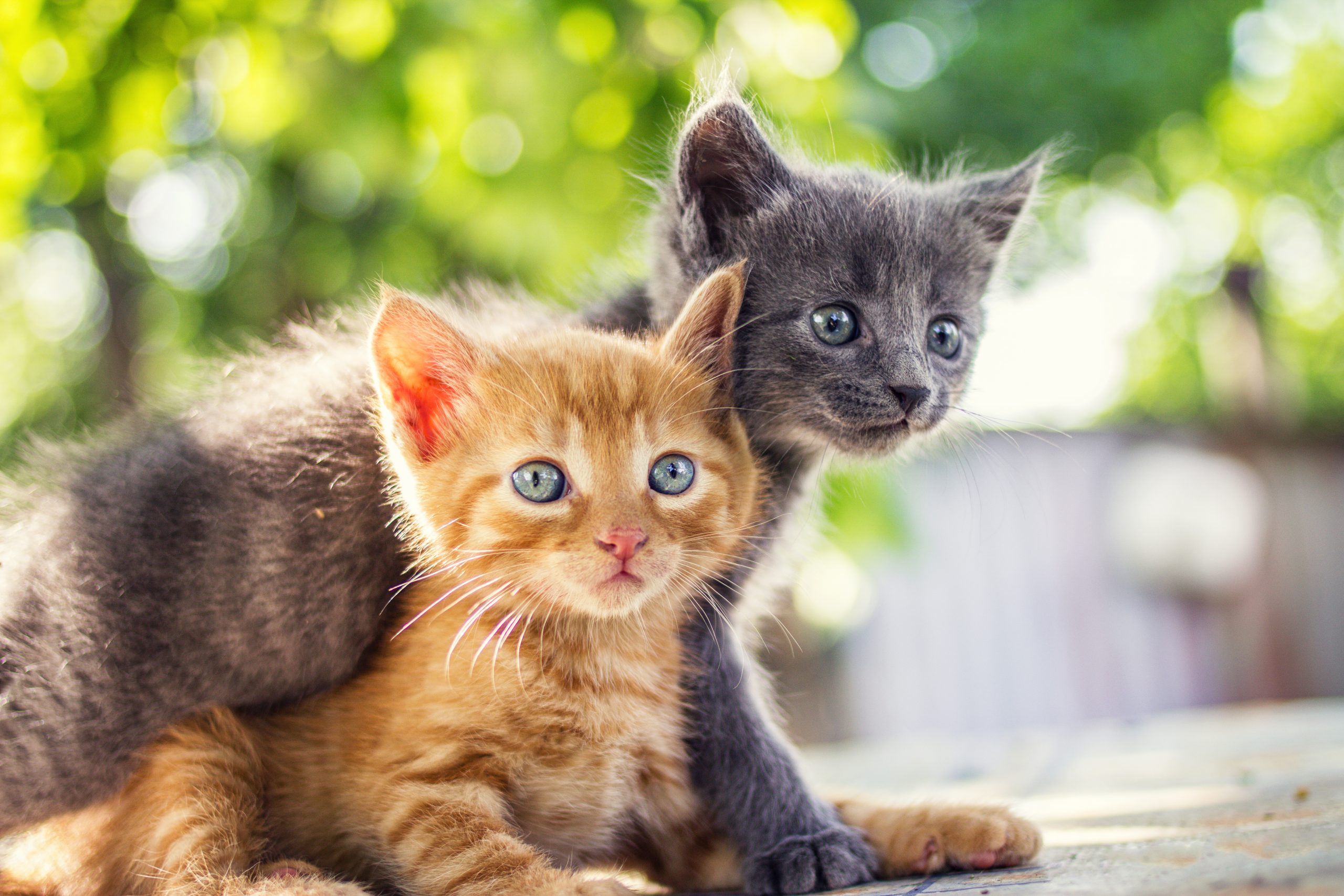You’re getting ready to bring your new kitten home and it’s all very exciting.

When thinking about getting a new kitten, the last thing on your mind is probably healthcare, but it’s a good idea to think about these things before you collect your kitten. That way, you know what questions to ask the breeder.
If you’ve already brought your new pet home, don’t be afraid of getting in touch with the breeder. It’s important to know what treatments they may have used on your kitten.
Here are a few important things to know about caring for kittens to get you started:
Vaccinations
You can vaccinate your kitten against 3 diseases: cat flu, enteritis and leukaemia.
Although the first two are rarely fatal in adult cats, they can be serious if contracted by a small kitten. The leukaemia virus can predispose your cat to anaemia and tumours, shortening their life expectancy.
You can vaccinate most kittens from 8 weeks of age.
They will need a second vaccination 3 weeks later. A week after this second vaccination, your kitten will be able to go outside. However, it is recommended that you keep them inside until they’ve been neutered.
Flea Treatment
You should ask your breeder whether they’ve treated your kitten for fleas – it’s common for kittens to arrive with a few unwelcome guests.
Fleas are usually found over the back and the base of the tail. Look out for flea dirt – small black specks that turn red when placed on damp cotton wool.
Weigh your kitten before treating them for fleas. Flea treatment for kittens depends on their age and weight. Always check the packaging, and ask your vet if you’re not sure.
Worming
It’s always worth asking your breeder whether they wormed your kitten. Roundworms can spread from mother to kitten, so your new pet will likely have them. And if you have a kitten with fleas, they probably have tapeworm.
You should worm your kitten every fortnight from 2 weeks of age until they are 12 weeks old.
Again, choose your worming treatment based on your kitten’s age and weight. Many products can’t be used on tiny kittens.
Microchipping
If you’re going to let your kitten go outside, getting them microchipped is a good idea. Cats often travel long distances and can lose their collars whilst out and about. A microchip will help trace them back to you should they get lost or stolen.
Microchips are about the size of a grain of rice and are usually implanted in the back of the neck. The needles can be quite big for a kitten, so it’s worth asking the vet to chip them whilst they’re being neutered. That way they’ll be asleep for the whole process. (amend according to country regulations)
Neutering
You should neuter your cat if you want to avoid unwanted kittens. Neutering can also help prevent uterine infections in female cats.
Unneutered male cats are more likely to get into fights. This means they’re predisposed to abscesses, and Feline Immunodeficiency Virus (cat AIDS). They’re also more likely to wander off or spray urine in the house.
You can neuter most cats from 16 weeks old, as long as they’re big enough.
Diet
A good diet is essential for helping your kitten grow into a healthy cat. Don’t feed them adult cat food – it will lack the essential minerals they need.
You should feed your kitten 4 times a day until they are 12 weeks old. Then drop down to 2-3 times a day until they’re 6 months old. The guidelines on your food packaging are just that – you may need to change the amount you feed your kitten based on their activity levels.
Some cats prefer dry food, and some prefer wet. Some dry food can be good for your cat’s teeth, but some cats won’t eat it so do what works for you and your kitten.
Behaviour
Your kitten may be cute, but it’s important to establish boundaries from an early age. Don’t let them bite you, or jump up onto work surfaces.
It’s possible to train your cat to come when called using positive reward-based training. Play games with your cat, and alternate their toys so they don’t get bored. This is particularly important if you keep your cat inside. A bored cat is a mischievous cat – your wallpaper and furniture will suffer if you don’t provide entertainment!
Litter Training
Most kittens will litter train themselves. If your kitten isn’t using the litter tray, try putting a few trays around the house. Try different litter materials and don’t put the tray near their food bowl.
If this doesn’t work, get them checked by a vet. A urinary tract infection or diarrhoea might be stopping them getting to the litter tray in time.
